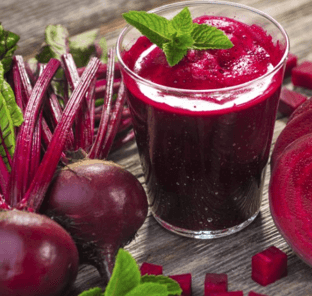The most critical function of our body is to preserve and distribute water. Our heart pumps it out and our kidneys purify and recycle it. Each cell in our body needs a sip.
Water is our body’s most precious natural resource—yet its relationship to health is often misunderstood. Let’s take a deeper dive.
Blood is Thicker Than Water
More than 90% of our blood is pure water. If we lose too much water or don’t drink enough, the blood becomes more concentrated. As a result, the heart has to work harder and faster to pump the thicker blood around.
In addition, dehydration causes the brain to signal a clamp-down on blood flow to the arms and legs, redirecting the limited blood supply to critical organs in our core.
Then the kidneys take over. When the kidneys sense dehydration, they recycle more water back into the bloodstream, leaving the urine concentrated and dark (more on that later).
Health Risks From Dehydration
Most heart attacks occur between 4 AM and 10 AM. It’s no coincidence that we tend to be most dehydrated during those hours. Dehydration in the early morning hours comes from lack of drinking, in addition to the fact that lying in bed makes our kidneys more efficient.
When we stand upright, much of our blood is pulled down by gravity and collects in our legs. But while lying down, blood drains from the legs and empties into our core, where more is available for filtering by the kidneys. That explains those nuisance trips to the bathroom! And leg cramping at night can be a sign of dehydration as well.
Dehydration leads to less blood flow. In addition, dehydration makes the blood stickier and more likely to clot. No surprise that heart attacks are more common during times of dehydration. Strokes are also more common, and much more devastating, in people who are dehydrated.
Symptoms of Dehydration
In addition to the usual thirst and dry mouth, there are several more subtle symptoms that often go unnoticed:
- Headache
- Dizziness
- Tiredness
Conditions that Encourage Dehydration
- Diabetes: Extra blood sugar spills into the urine and drags water with it, leading to dehydration. Excessive urinating is one of the hallmark symptoms of diabetes.
- Diuretic medicine: Although prescribed to promote water loss, problems can occur from too high a dose, or a sudden decrease in drinking fluids when diuretics are taken.
- Alcohol: Alcohol around bedtime is even more likely to dehydrate you. Best to have a glass of water after that nightcap.
Tips to Keep Yourself Hydrated
There’s no one-size-fits-all advice to keep yourself well hydrated. A lot depends on the climate and your activity level. The conventional wisdom of 8 glasses of water per day is probably more than most people need.
Fortunately, your body has a wonderful built-in water meter. The color of your urine is a helpful dipstick: pale yellow urine means good hydration, dark yellow is a sign that you are likely dehydrated and need to drink more.
How much water we drink deserves as much attention as our food choices. Tap water works great—even better for our planet when you use refillable containers.
References:
Urine Color Chart to Gauge Hydration (a fun party game?)
Interested in living a healthier lifestyle?
Learn the essentials of eating and living healthfully in our interactive, user-friendly learning program for the public.
Clinicians: Do you feel confident responding to patient questions about nutrition?
Take our award-winning condensed interactive nutrition CME—and learn what every clinician should know about nutrition.



